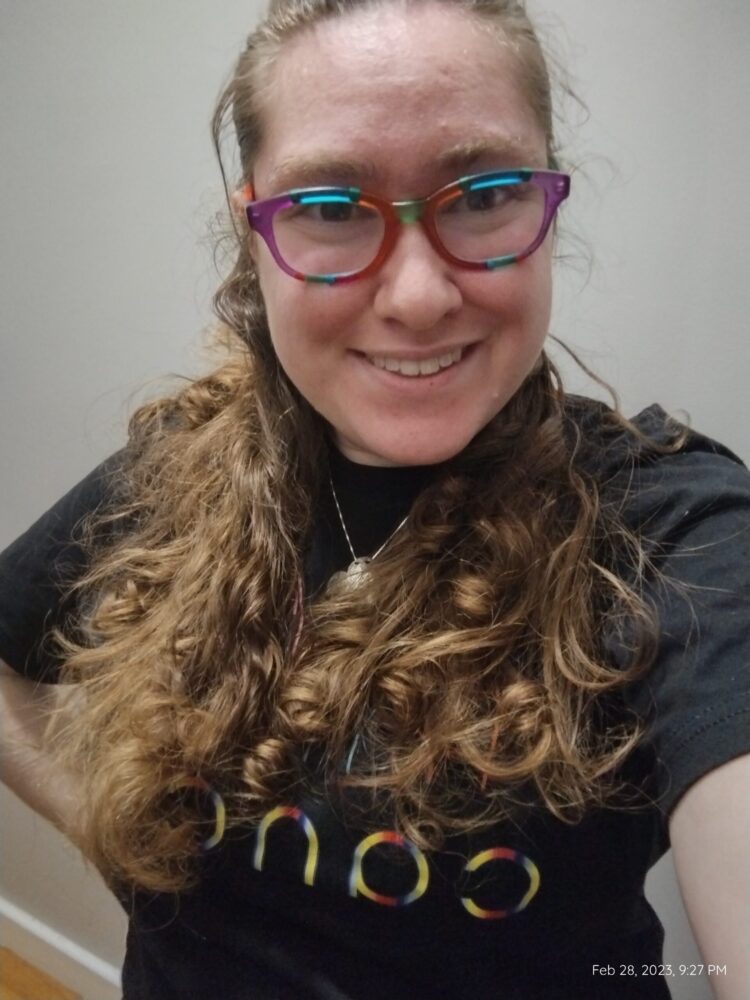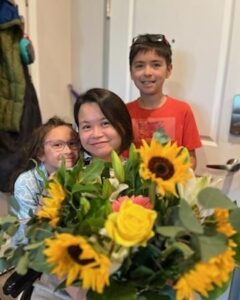 Aylat Lifshitz of Boston, Mass., began experiencing headaches and neurological symptoms between the spring and summer of 2019. Doctors initially dismissed her symptoms, but in August 2019, her health issues were finally taken seriously. An MRI was ordered, which revealed a brain metastase that led to a diagnosis of angiosarcoma. At 24 years old, Aylat began her sarcoma journey.
Aylat Lifshitz of Boston, Mass., began experiencing headaches and neurological symptoms between the spring and summer of 2019. Doctors initially dismissed her symptoms, but in August 2019, her health issues were finally taken seriously. An MRI was ordered, which revealed a brain metastase that led to a diagnosis of angiosarcoma. At 24 years old, Aylat began her sarcoma journey.
After receiving the news about Aylat’s sarcoma diagnosis, it was another month until doctors discovered the primary tumor on her heart and she immediately began treatment. She underwent nine rounds of systemic chemotherapy and had three separate radiations: Stereotactic Body Radiation Therapy (SBRT) to her brain resection cavity, two months of Proton Radiation to her mitral valve, and another SBRT to one of her spine metastase after chemotherapy ended. “Treatment had a lot of ups and downs, and I had multiple dose reductions because of how my body was responding to the chemotherapy treatments. But overall, it was effective for my disease, and I have been NED (No Evidence of Disease) since July 2020,” says Aylat, a special education teacher.
Through the difficult and intensive treatment, Aylat had a strong support system, including friends and family who were by her side throughout her journey. Unfortunately, the COVID pandemic did make family in-person visits challenging after her first months of treatment. She also received therapy to help her cope with the emotions of having cancer at a young age. “I (believe) everyone diagnosed with cancer, not just sarcoma, can benefit from a therapist,” says Aylat. She also finds solace in Adolescent and Young Adult (AYA) circles on social media and engaging with organizations that provide art and writing workshops and other social and emotional support for AYA patients. In addition, Aylat has found her sense of humor to be a valuable coping mechanism that helped her deal with the emotional toll of her diagnosis. “Another thing that I really gravitate towards is dark humor, which can be off-putting to some who have not experienced cancer, but for me it has been really helpful,” she says.
For those newly diagnosed with sarcoma, Aylat advises getting a second opinion. “You can always get a second, third or fourth opinion, and it will not impact what your doctor thinks of you,” she says. Aylat also stresses the importance of being treated at a sarcoma center, as the expertise of the staff and resources can significantly impact a patient’s treatment journey. She also recommends seeking mental health support. “Don’t be afraid to seek out emotional support, whether that’s from the psycho-oncology team at a treatment center or a private practice. (It’s) a space to process your emotions about this disease while not being afraid to impact the emotional state of someone around you,” Aylat says.
Aylat’s journey with sarcoma has taught her not only about the healthcare system, but also about the power of sarcoma advocacy, awareness and education. She is now a champion for improving the lives of cancer and rare disease patients through her advocacy efforts. “I have started to learn how to advocate for myself, both on a personal level, such as calling my doctors when I am concerned about a symptom,” she says. “And on a larger level I share my story with others and speak to policymakers to try to influence change for cancer patients and rare disease patients like me.”




